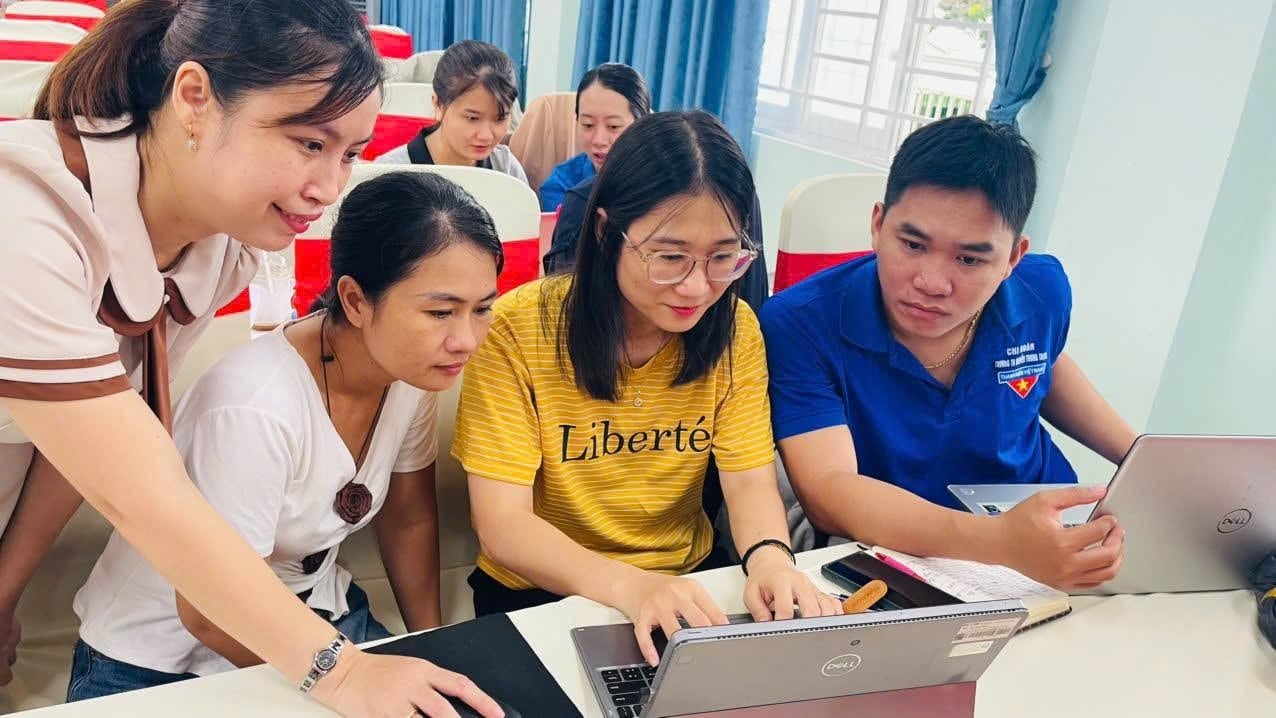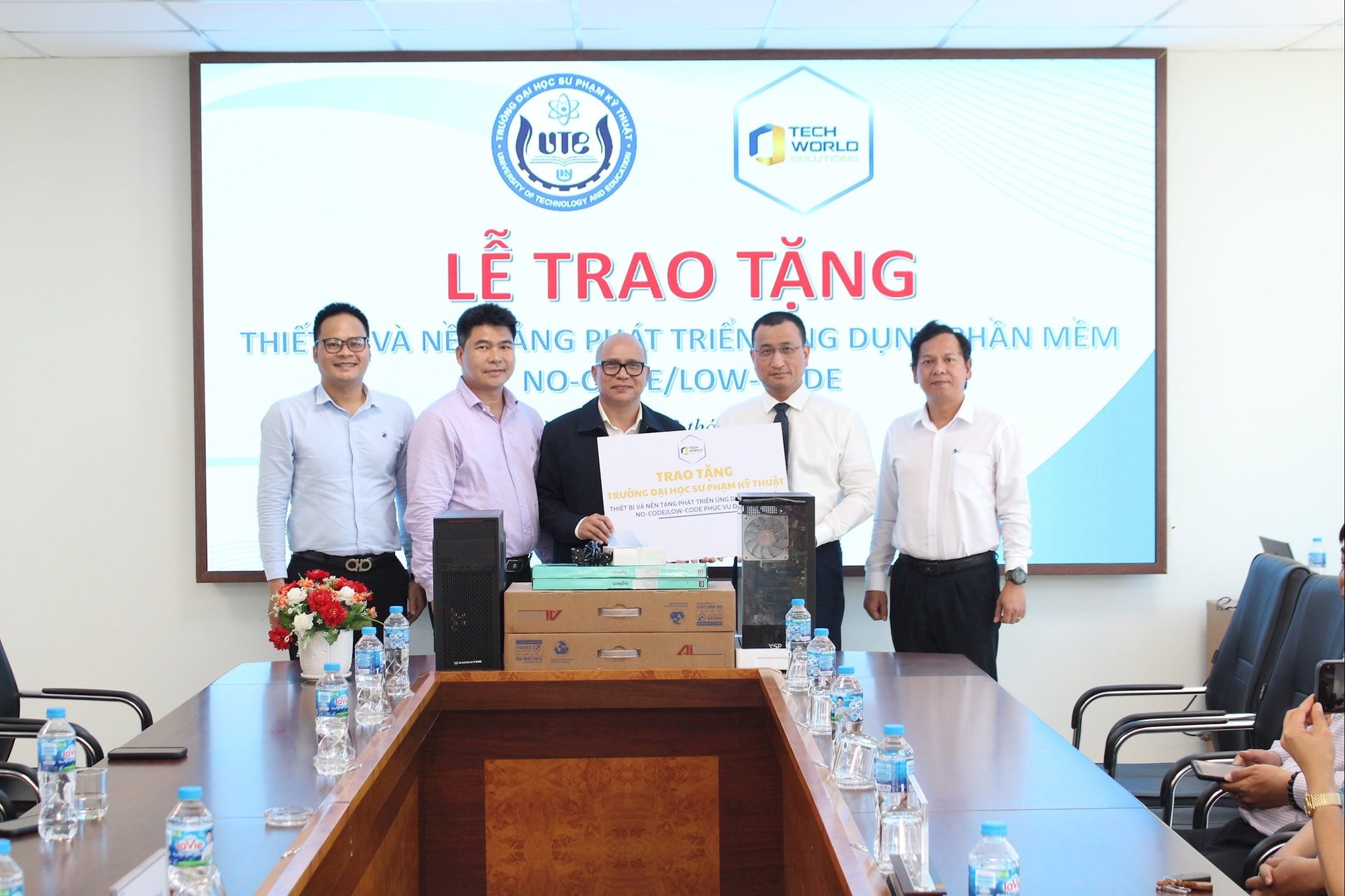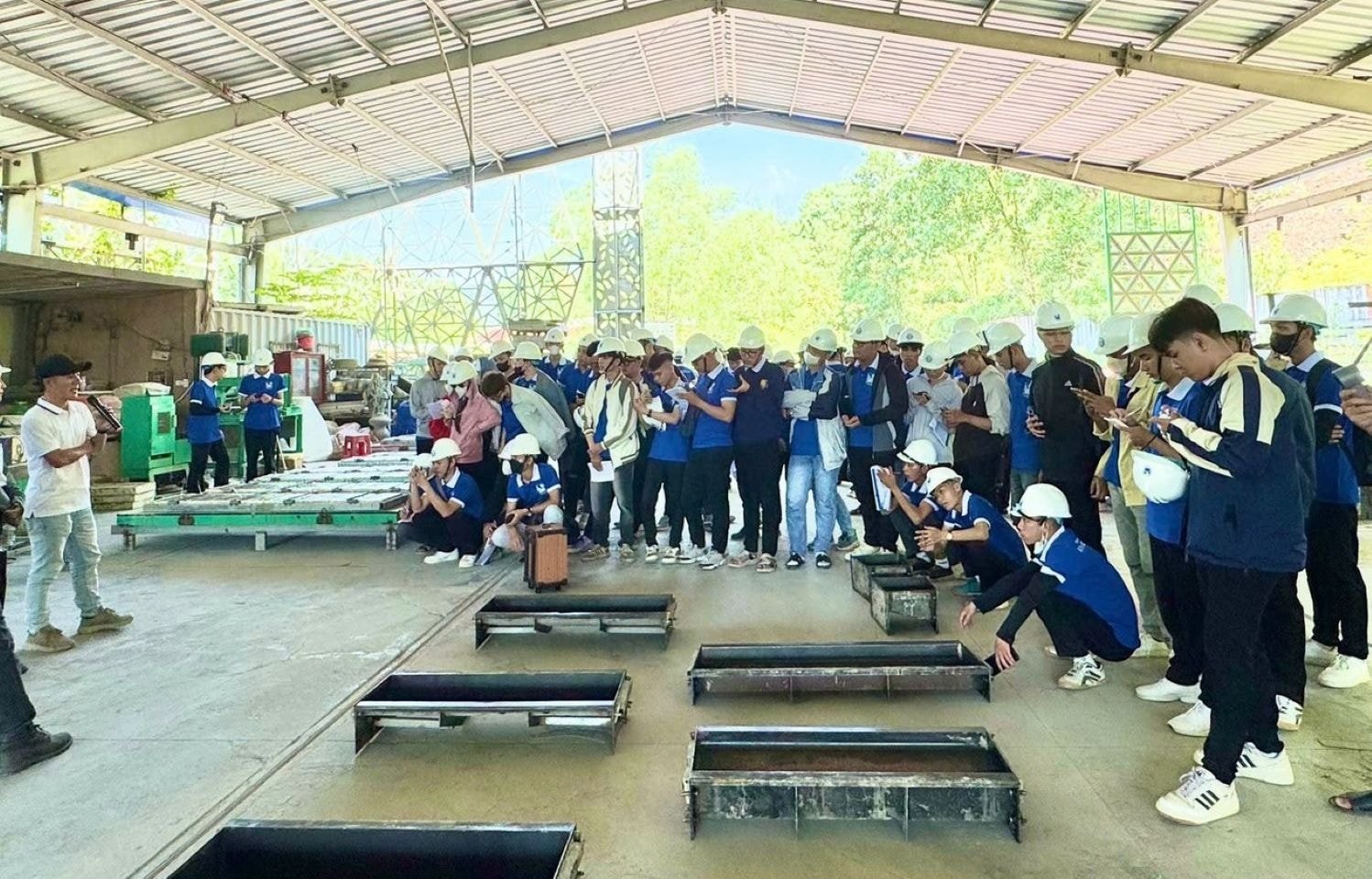
A comprehensive strategic breakthrough in education.
Resolution No. 71-NQ/TW emphasizes that breakthroughs in educational development must begin with innovation in thinking, awareness, and institutions. Compared to the previous period, Resolution No. 71-NQ/TW shifts the focus from "fundamental and comprehensive reform" to "strategic breakthroughs" in education. The solutions proposed in the resolution both build upon existing foundations and add new points, creating a comprehensive transformation for the education sector.
Vo Dang Chin, the principal of Tra Nam Ethnic Boarding Primary and Secondary School (Tra Linh commune), hopes that Resolution No. 71-NQ/TW will be a catalyst for changing investment thinking and improving the quality of education in disadvantaged areas. Resolution No. 71-NQ/TW introduces several important new points related to policies for teachers and staff in the education sector in disadvantaged areas.
Specifically, allowances for teachers in disadvantaged areas have been increased to 100%, and for the first time, library and equipment staff will also receive separate allowances. This is considered a step forward in supporting a group that typically has low salaries, few benefits, and often works in difficult conditions.

However, Mr. Vo Dang Chin also expressed that the shortage of teachers in mountainous areas is not only due to incentive policies and attractive salary and allowance schemes. The biggest difficulty lies in the limited infrastructure and the extremely inadequate material and spiritual living conditions of teachers. Therefore, increasing allowances is only a short-term solution; to address the root cause, a more comprehensive policy is needed, ranging from infrastructure investment to improving the quality of life for teachers in remote areas.
To address this issue at its root, according to Mr. Chin, along with improving salary policies and incentive allowances for teachers in disadvantaged areas, it is necessary to upgrade facilities, narrow the regional gap, and create more favorable teaching and learning conditions.
Meanwhile, Ms. Huynh Thi Thu Nguyet, Principal of Le Dinh Chinh Primary School (Hoa Cuong Ward), is interested in solution number 8 in Resolution No. 71-NQ/TW, which is "Promoting deep and broad international cooperation and integration in education and training".
According to Ms. Nguyet, this solution will promote and facilitate the integration and development of talent from secondary school to university. While previously, policies encouraging lecturers to study and research abroad mainly focused on university level, this resolution expands the scope to include secondary schools, especially high-quality schools or digital schools. This is a noteworthy new point, as it will give secondary school teachers more opportunities to improve their skills and access international standards to apply to their teaching practice.
Elevating and paving the way for the development of higher education.
Associate Professor Vo Van Minh, Rector of the University of Education ( Da Nang University), hopes that when Resolution No. 71-NQ/TW comes into effect, the teaching staff will not only have a better life but also more motivation to innovate professionally and confidently accompany the development of the country.

This resolution has elevated the status of teachers, placing them at the center of all reforms, with more specific and robust policies such as increasing preferential allowances, improving remuneration, focusing on continuous professional development, and providing opportunities for career advancement. In addition, it has reformed the educational philosophy beyond simply "teaching literacy and vocational skills" to cultivate well-rounded individuals who are creative, humane, responsible citizens, and internationally integrated.
At the same time, it affirms the responsibility and leadership role of education administrators, shifting from administrative-based management to creative and efficient management, using quality and human development as benchmarks.
Associate Professor Dr. Nguyen Le Hung, Rector of the University of Technical Education (Da Nang University), believes that Resolution No. 71-NQ/TW contributes to creating a new impetus for public-private cooperation in higher education; it is considered a strategic foundation for building a new development model for higher education.
As Vietnam aspires to become a developed, high-income nation by 2045, the role of universities has fundamentally changed. Universities can no longer be merely places that impart knowledge; they must become the driving force of the national innovation ecosystem.

Resolution No. 71-NQ/TW accurately captured this trend, so the "unleashing" and "red carpet" policies are not merely financial in nature. The exemption from land use fees, tax reductions, and priority access to credit are essentially a strong declaration by the Party and State that investing in education is the most effective investment for the country's future. This creates a level playing field and an attractive environment, inviting businesses not only as "sponsors" but also as "strategic shareholders" in the development of human resources.
According to Associate Professor Dr. Nguyen Le Hung, in the spirit of Resolution No. 71-NQ/TW, the Government can use public investment to lead and activate private resources through the state acting as the "conductor," using the budget to invest in shared research infrastructure projects of national or regional scale, located at key universities. This would create a strong foundation to attract businesses to participate in exploitation, investment, and development.
Source: https://baodanang.vn/cu-hich-de-giao-duc-but-pha-3303154.html


![[Photo] Golden season of organic farming under the canopy of the vast Mang Den forest.](/_next/image?url=https%3A%2F%2Fvphoto.vietnam.vn%2Fthumb%2F1200x675%2Fvietnam%2Fresource%2FIMAGE%2F2026%2F01%2F24%2F1769247398190_ndo_br_cam-15-jpg.webp&w=3840&q=75)













































































































Comment (0)